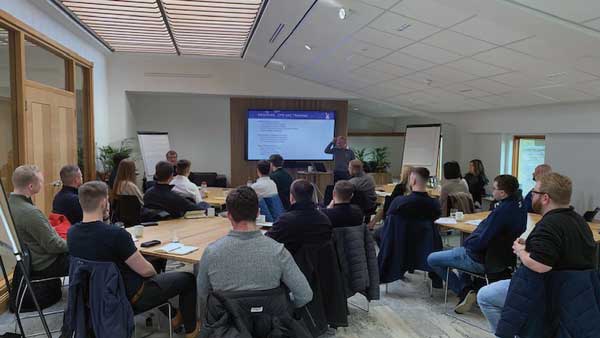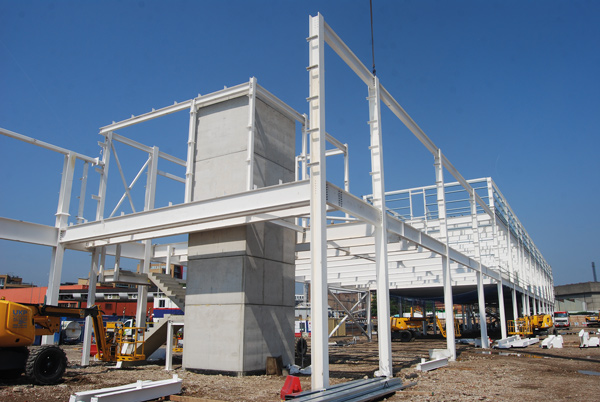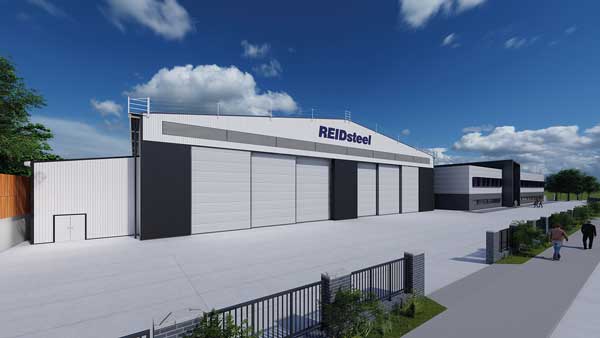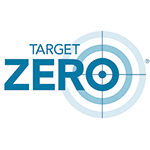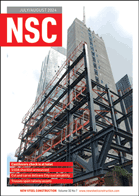Projects and Features
Steel is the responsible business choice

The Corus Scunthorpe Family Gala, now in its 76th year, attracts around 20,000 visitors each year. Primarily for Corus em- ployees and their children, it is open to the general public and offers some- thing to suit all ages.
Sustainability implies a focus on responsible business practice across an organisation’s activities and all along the supply chain. Nick Barrett explains why constructional steelwork is increasingly the sustainable material of choice for responsible clients and designers.
As well as being the preferred solution for building frames, steel is the responsible material of choice for building frame construction. Selecting steel is to select a material that is fully sustainable in that it represents a socially and environmentally responsible choice as well an economically attractive option.
A responsible approach to business is a common thread throughout the constructional steelwork supply chain. The constructional steelwork sector prides itself on having adopted all of the business best practices that it is practicable to do and is continuously seeking improvement.
The entire steel supply chain is dedicated to behaving in sustainable and responsible ways that enhance the local communities in which they work as well as those they serve.
Responsible management
The focus on responsible management in the UK constructional steelwork sector can be said to start with steel manufacturer Corus taking a lead in ensuring sustainable practices among its raw material and other suppliers. It extends through the UK structural steel design community, which is given all possible technical support from Corus and its partners in the steelwork sector as it strives to produce the most sustainable designs for buildings and other structures.
This support includes technical help from Corus engineers, up to date design guidance and other research based back up from the Steel Construction Institute and the British Constructional Steelwork Association. BCSA’s members, individual steelwork contractors, are also committed to acting responsibly and in sustainable ways, for example through reducing their carbon footprints and signing up to the BCSA’s Sustainability Charter.
Corporate responsibility is integral to the way Corus does business – it achieves world class status. Corus takes corporate responsibility seriously and has group-wide health, safety, social, ethical and environmental policies in place to ensure that it is integral to the Corus way of doing business. Management systems, certified in accordance with international standards, are in place to ensure responsible management of all the company’s operations.
For example 100% of manufacturing sites are certified to ISO 14001, the International Environmental Management System Standard. An environmental intranet site – Corus Environment Online – was launched in 2006 to promote the exchange of good practice across the company. There is a consistent focus on health and safety and employee welfare across Corus and this has resulted in improved performance on the key measures.
Corporate Responsibility policy
Corus prides itself on providing products and services that contribute positively to society and improve the quality of life for its employees and the communities in which they operate. These standards are encouraged among suppliers and contractors both in the UK and worldwide.
The Corus focus on the supply chain stems from the company’s Corporate Responsibility policy. Corus aims to offer value and reliability as well as innovation, with its brand representing quality, loyalty and strength.
Integrating environmental, social and economic factors within its business processes adds to
the sustainability of Corus’ operations. The sustainability focus continues up the Corus supply chain, as suppliers are encouraged to act in the same sustainable and responsible ways. Corus works in partnership with key suppliers to help them operate to the same high standards. An example is the partnership with Brazil’s Companhia Vale do Rio Doce (CVRD) which is Corus’ largest supplier of iron ore.
CVRD was one of the first companies in Brazil to implement ISO 14001 – its iron ore mines in Carajas were, in 1998, the first of their kind in the world to receive ISO 140001 certification. CVRD now has 15 certified facilities, including mines and the seaport from which ore is exported to Europe. The company also has an active environmental strategy aimed at preserving tropical forest and supports government policies aimed at eliminating famine and hunger from the poorer parts of Brazil.
Climate change
A Climate Change Task Force has been formed to develop forward strategy in these key areas, which also includes improving energy efficiency. A leading role is being played in a major European research project – ULCOS – to develop breakthrough technologies for ultra-low CO2 steelmaking. CO2 emissions in production of steel are often offset by efficiencies elsewhere in the construction life cycle due to effective design taking advantage of the properties of steel, such as lighter weight structures for buildings, and recycling. Steel has inherent sustainability advantages due to being durable, adaptable, reusable and recyclable.
This article gives a flavour of the work been done in the joined up constructional steelwork supply chain which is committed to best practice and promoting responsible and sustainable practices throughout its operations. It concludes the series on sustainability topics. Other articles in the series can be downloaded in pdf format from www.new-steel- construction.com.
Sustainability Charter underpins responsible service
One of the key ways in which a steelwork contractor can demonstrate its commitment to acting in sustainable and responsible ways is to sign up to the BCSA’s Sustainability Charter which was launched in 2006. As part of the Charter’s audit process companies who have committed to acting in a wide range of sustainable ways are awarded points for their achievement, and the total points tally earned then gains them either Gold, Silver or Member Charter Status.
To join the Charter BCSA members have to formally declare that they will:
- Operate their businesses in efficient and financially sustainable ways in order to undertake contracts that satisfy clients and add value for stakeholders.
- Work to optimise the impact of manufacturing and construction activities on the eco-efficiency of steel construction through its life cycle.
- Work towards increasing the efficiency of use of resources and energy in steel construction by promoting the recovery, reuse and recycling of steel.
- Foster the health and safety of employees and others in the steel construction industry, and operate generally in a healthy, safe and environmentally sound manner.
- Demonstrate its social responsibility by promoting values and initiatives that show respect for people and communities associated with steel construction.
- Conduct business with high ethical standards in dealings with employees, clients, suppliers and the community.
- Engage stakeholders and independent third parties in constructive dialogue to help implement sustainable development.
- Build on their knowledge of sustainability and willingly share this with others, by being open and active in communications and by helping steel and construction companies and other organisations in the supply chain to implement sustainable policies.







